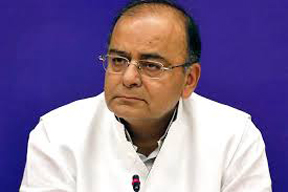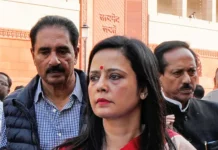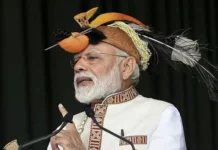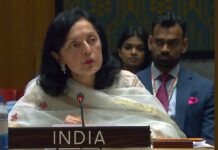 SINGAPORE: Promising more reform measures in coming days, Indian Finance Minister Arun Jaitley on Friday said a lot of public investment is taking place in India and government is trying to ensure that private investment, including from abroad, also increases to support economic growth.
SINGAPORE: Promising more reform measures in coming days, Indian Finance Minister Arun Jaitley on Friday said a lot of public investment is taking place in India and government is trying to ensure that private investment, including from abroad, also increases to support economic growth.
Inviting foreign investors to participate in India’s growth story, he assured them of continuing reform process for development of an investment-friendly environment and said there were no more complaints left about investment proposals from abroad being held up.
Jaitley, who came here this morning to meet top government leaders and foreign investors, said that investors from the world over have been quite appreciative of what is happening in India and “they have great hopes of India being an important player in the world economy today”.
He held an extensive ‘dialogue session’ with nearly 300 Singapore-based business leaders and investors, including representatives of global entities from Europe and America.
Asserting that reforms are an ongoing process, he assured investors that the government will continue to take these measures to make India an attractive investment destination and a better place to do business.
“The bankruptcy code is ready and changes to arbitration laws and several other legislations are in the pipeline… For the next few years, we have our agenda full, reforms are an ongoing process,” Jaitley said, adding that the legislations which could be taken in the form of the Money Bill will be pursued.
A Money Bill is important as it cannot be blocked by the Rajya Sabha where the ruling NDA does not have a majority.
Recalling that there was a time when the experts were talking about dropping India from BRICS (Brazil, Russia, India, China and South Africa), Jaitley said: “Today, India has become the fastest-growing economy among BRICS.”
India is no more a nation suffering from policy paralysis and uncertain taxation regime, he said, adding that now-a-days states are vying with each other to attract investment.
Moreover, he added, as a net importer, the country has benefited from declining oil prices in the international market. It has helped contain inflation as well as fiscal deficit. .
The government, Jaitley said, has been trying to address the problems of some of the sectors which are going through a bad phase.
“There have been some stressed sectors. Steel, power and discoms and sectoral interest of these sectors over the last few months have been specifically addressed,” he said.
Referring to the banking sector reforms, he said the government is recapitalizing state-owned banks and professionalizing their management.
“Banking sector is another stressed sector in India and we have started recapitalizing and professionalizing the banking system. The program we have laid down…over the next 3-4 years, our banks will be back in shape. It is not a very challenging situation they were passing through… They will get out of that phase,” he said.
A host of initiatives by the government, Jaitley said, have brought about “a positive environment which has built up across the country. Now every state is vying for global investment”.
He regretted however that the key indirect taxation reform Bill – Goods and Services Tax (GST) – could not be pushed through in the last session of Parliament.
On the Direct Benefit Transfer (DBT) scheme, the minister said it has helped in reducing subsidies and rationalizing public expenditure.
“Our direct benefit transfer…has actually rationalized a lot of expenditure which was otherwise going waste.
Duplications have been done away with, and even in the case of food and fertilizer, the pilot projects are now taking off.
Once these projects go through, our saving itself, without an impact on the underprivileged, is going to be reasonable,” he added.
The savings on these accounts, Jaitley said, would be diverted to improve irrigation facilities and infrastructure.
“The economic returns of investment on irrigation are always the fastest. You build up a huge agriculture buffer and control food prices and you build up a large purchasing power among a majority of Indians. This impacts the manufacturing and services sector,” he said.
The government has been focusing on development of highways, which had slowed “terribly”, he added.
“Infrastructure had slowed over the years. Rural roads to the national highway program have picked up in a big way.
Highways had slowed down terribly, but it’s one of the sectors (in which) in the last 12 months, a lot of public resources have been invested. We put in a lot of budgetary support in modernizing the railways,” the Minister added.–PTI






